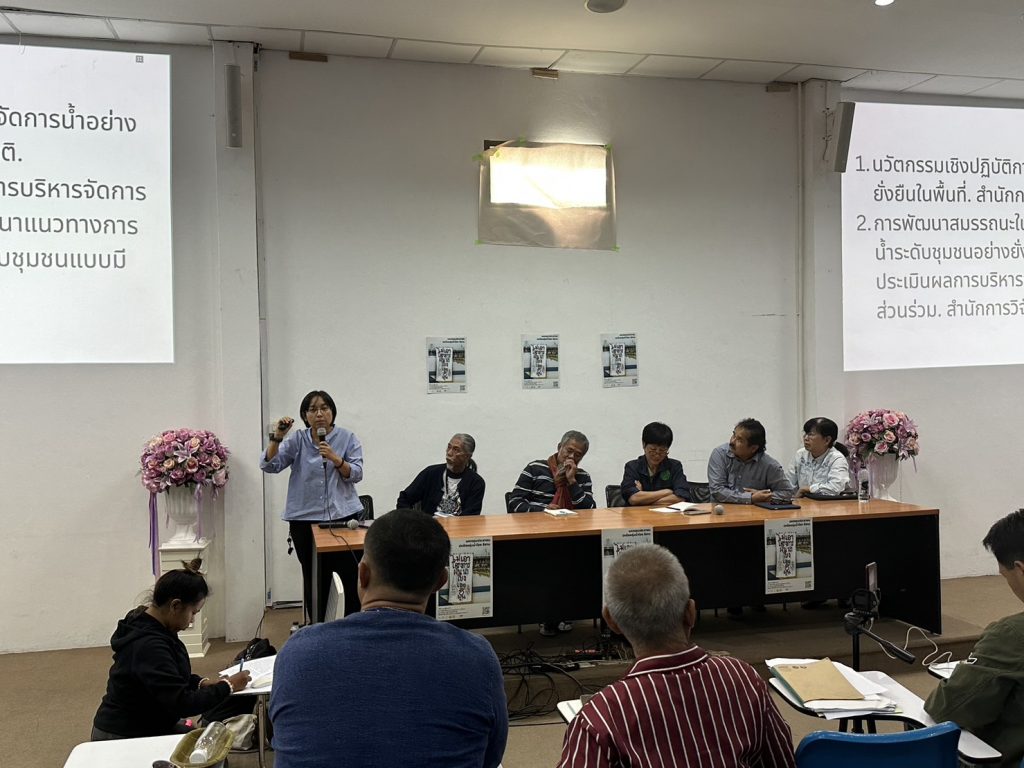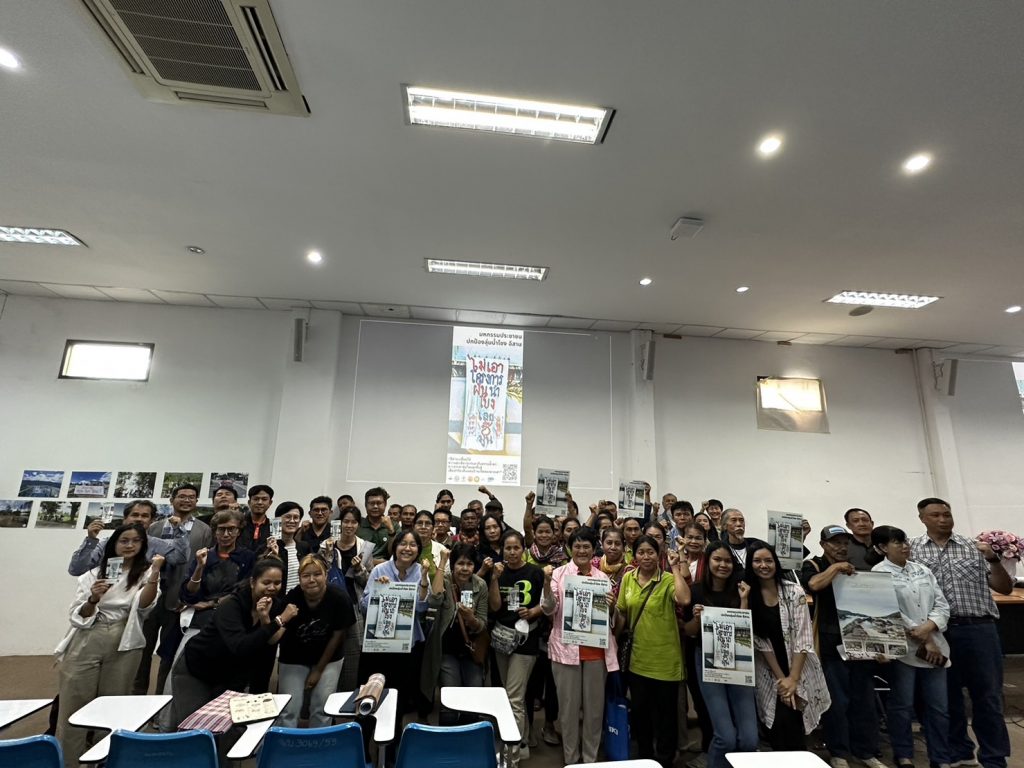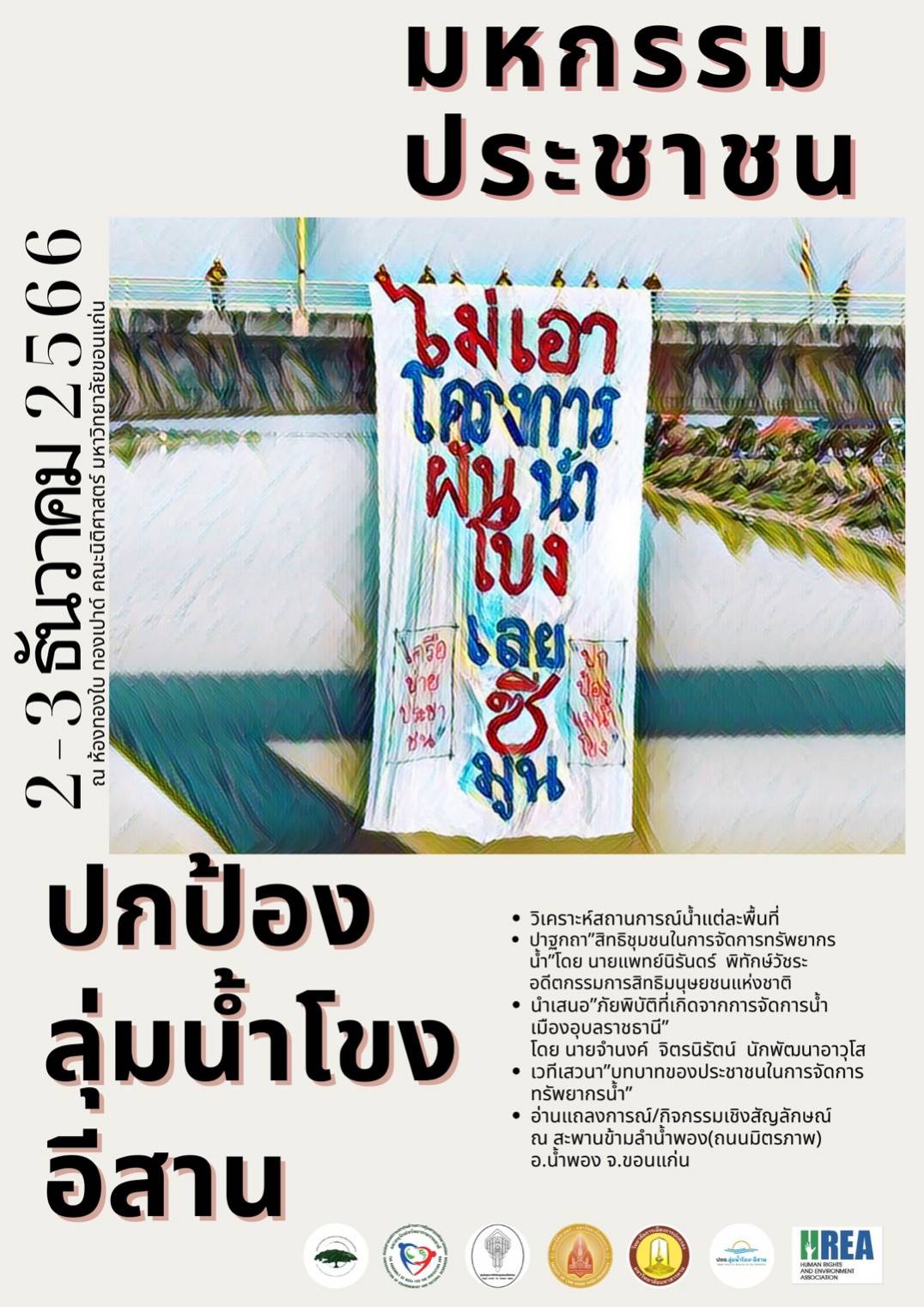The topic was creating a stronger role for citizens in water resource management. In general, both people’s organization representatives and academics advocated for knowledge-sharing between the government, academics, and local people. Many attendees asked for transparency, accountability, information sharing, and decentralized power in decision-making and management of resources. For example, some attendees feel a conflict of interest if companies involved in project EIAs and planning also work on project construction and implementation. But people directly impacted by projects should have more information about and power in decisions that affect them.

Some specific projects discussed were the Loei-Chi-Mun water diversion, Udon Thani Potash mine, Chi and Mun Rivers dams, sugar factories, and biomass power plants.
Two other significant issues were documents from July to September 2023 related to a proposal for water control structures on the Chi River, and the Integrated Master Plan Study To Alleviate Floods and Drought in the central Chi River basin. Both of these documents contained plans for technical water management. On paper, the Master Plan Study shows public involvement from the beginning of the process. However, the timeline appears to show that a determination of what the issues/needs are, and a decision that specific types of projects are needed have been made before the public process starts. An EIA occurs later in the process and is followed in the timeline by proposals to reduce environmental impact.

Among the concerns of attendees – it’s not clear where in the process the public has the power to frame the issues, make their own informed proposals alongside academics and scientists, or whether an EIA or public input can cancel part or all of the plan. It’s also not clear how or if baseline and up-to-date ecological assessments of the project area/s are being used. And it’s unclear if the cumulative impact of projects on the basin is included in EIAs. Non-cash economy impacts that create real costs for communities can show up as increased economic activity (economic growth) while ironically making people’s lives harder, and making them cash-poorer. It’s not clear how or if the assessments will account for any impacts or losses of this type.

There was a similar gathering of some of the same groups on similar topics in December 2022. There appeared to be more participants from communities in northern Chiang Rai Province, and regional NGOs at the 2022 meeting. Moving the venue to Kohn Kaen Faculty of Law contributed to a rights-based focus in addition to environmental concerns. Connecting local peoples’ networks, and various requests to decentralize management and administration fit in this framing. Terms like water governance and resource management are still human-centric and don’t fit with the systems or holistic perspective some attendees advocate. However, collaboration between an interdisciplinary group of academics and geographically distant community groups with common interests and issues appears to continue to develop.


